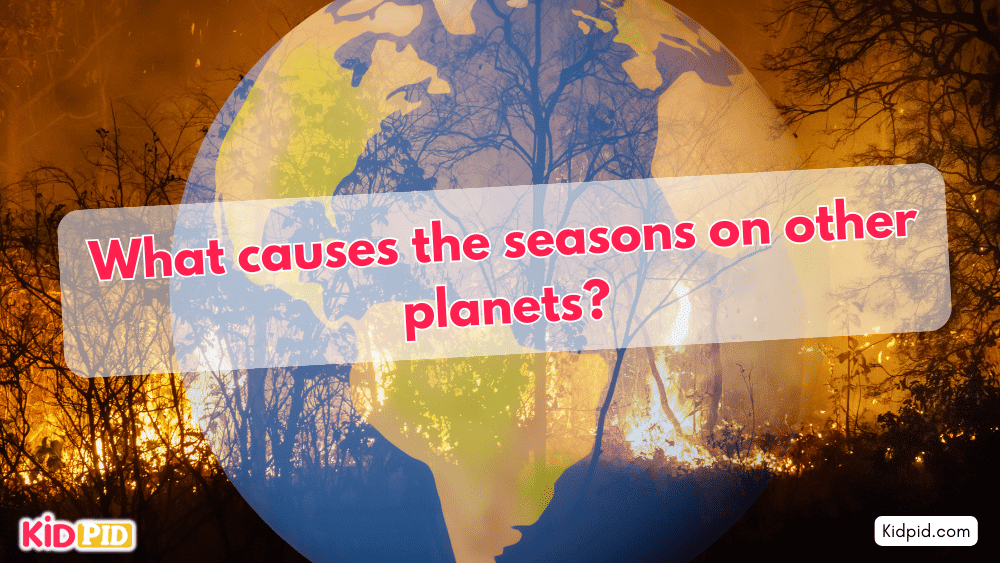The seasons on other planets are caused by their axial tilt and their orbit around the Sun. Just like Earth, a planet’s tilt affects how sunlight is distributed over its surface throughout its orbit, leading to seasonal changes.
Contents
MCQs
1. Which planet has the most extreme seasons?
A) Earth
B) Mars
C) Uranus
D) Venus
Answer: C) Uranus
Explanation: Uranus has the most extreme seasons because it has an axial tilt of about 98 degrees, which means it essentially rotates on its side.
2. Why does Mars have seasons?
A) Because of its many moons
B) Because of its rings
C) Because of its axial tilt
D) Because of its distance from the sun
Answer: C) Because of its axial tilt
Explanation: Like Earth, Mars has seasons because of the tilt of its axis. This tilt causes the sunlight to hit Mars differently throughout its orbit.
3. Which planet does not have seasons?
A) Earth
B) Jupiter
C) Venus
D) Saturn
Answer: C) Venus
Explanation: Venus does not have significant seasons because it has a very small axial tilt of about 3 degrees, making seasonal variations minimal.
4. How long is a season on Uranus?
A) 7 Earth years
B) 21 Earth years
C) 42 Earth years
D) 84 Earth years
Answer: B) 21 Earth years
Explanation: Each season on Uranus lasts about 21 Earth years because a full orbit around the sun takes 84 Earth years, and there are four seasons in a year.
5. Why do seasons vary in length on some planets?
A) Because of the planet’s size
B) Because of the shape of the planet’s orbit
C) Because of the number of moons
D) Because of the planet’s distance from the sun
Answer: B) Because of the shape of the planet’s orbit
Explanation: Seasons vary in length on some planets due to variations in their axial tilt and orbital characteristics around their host star.
Read More
